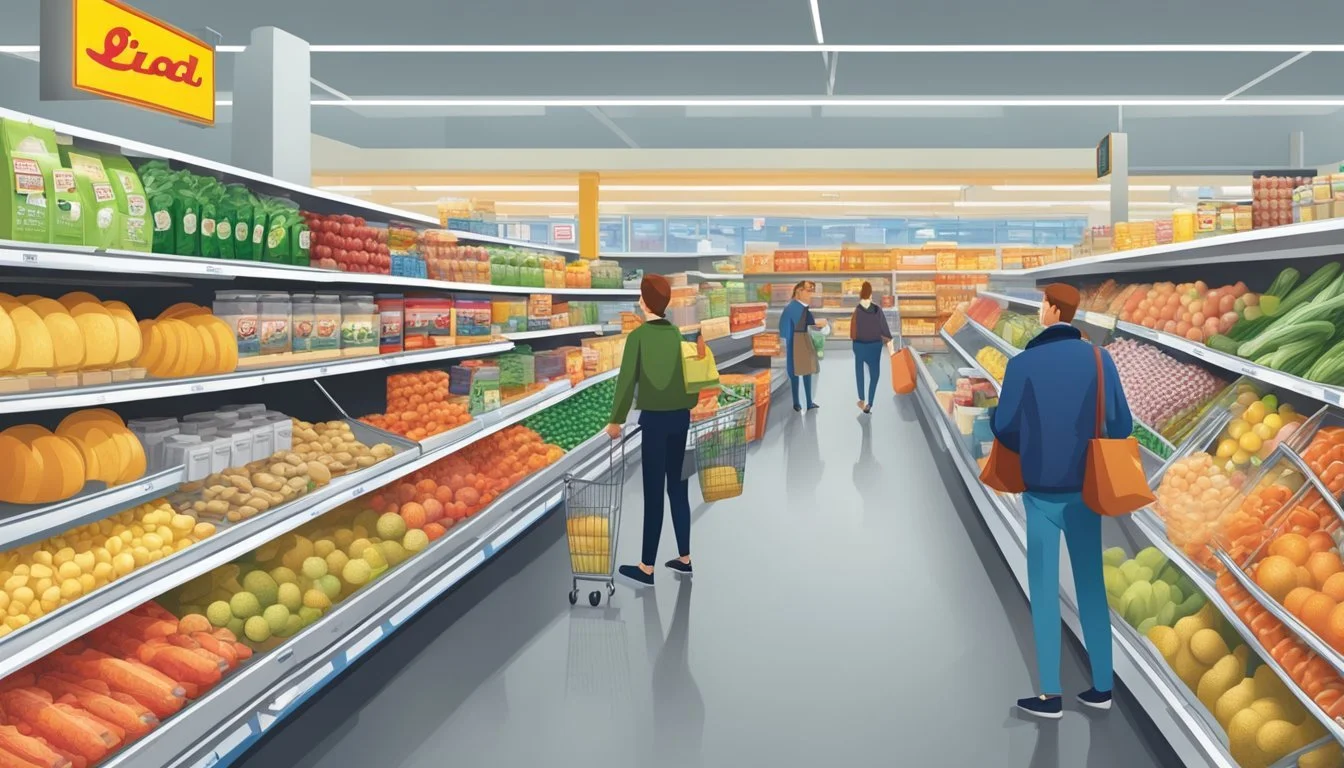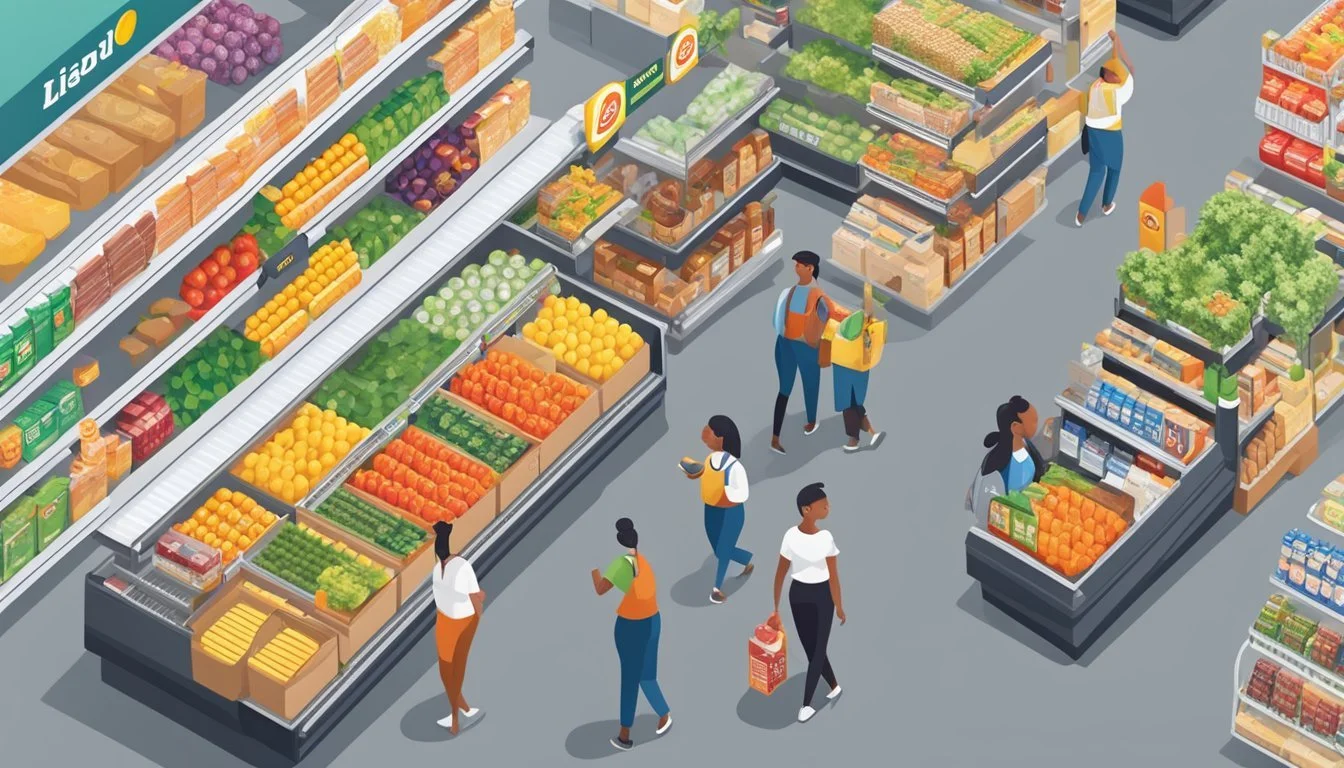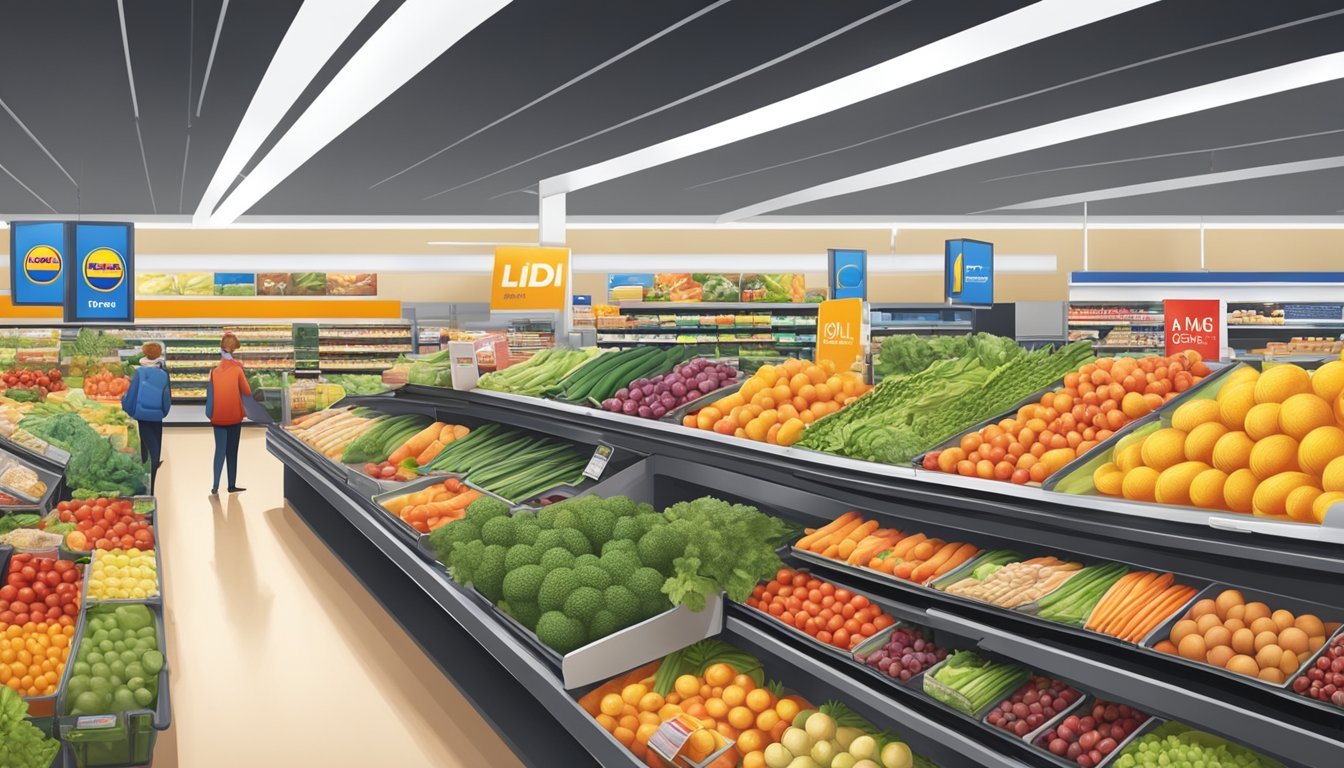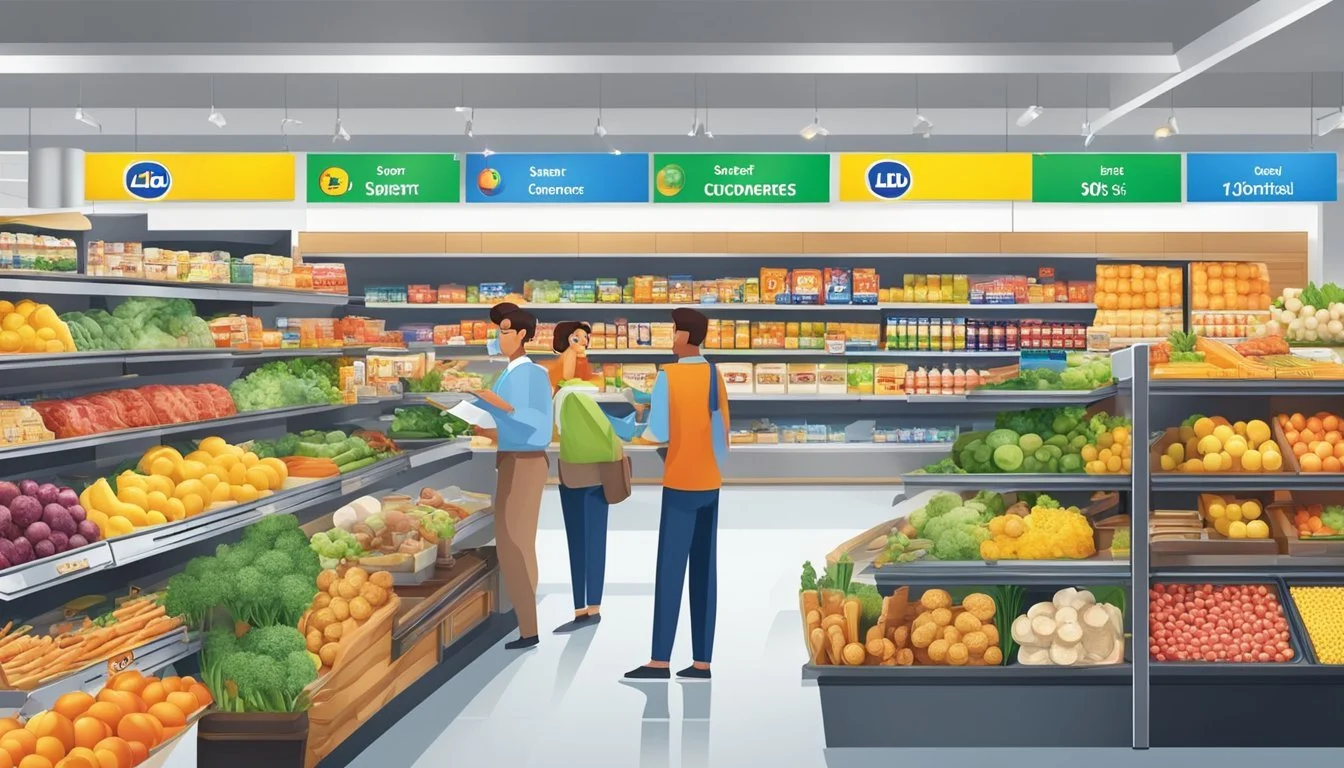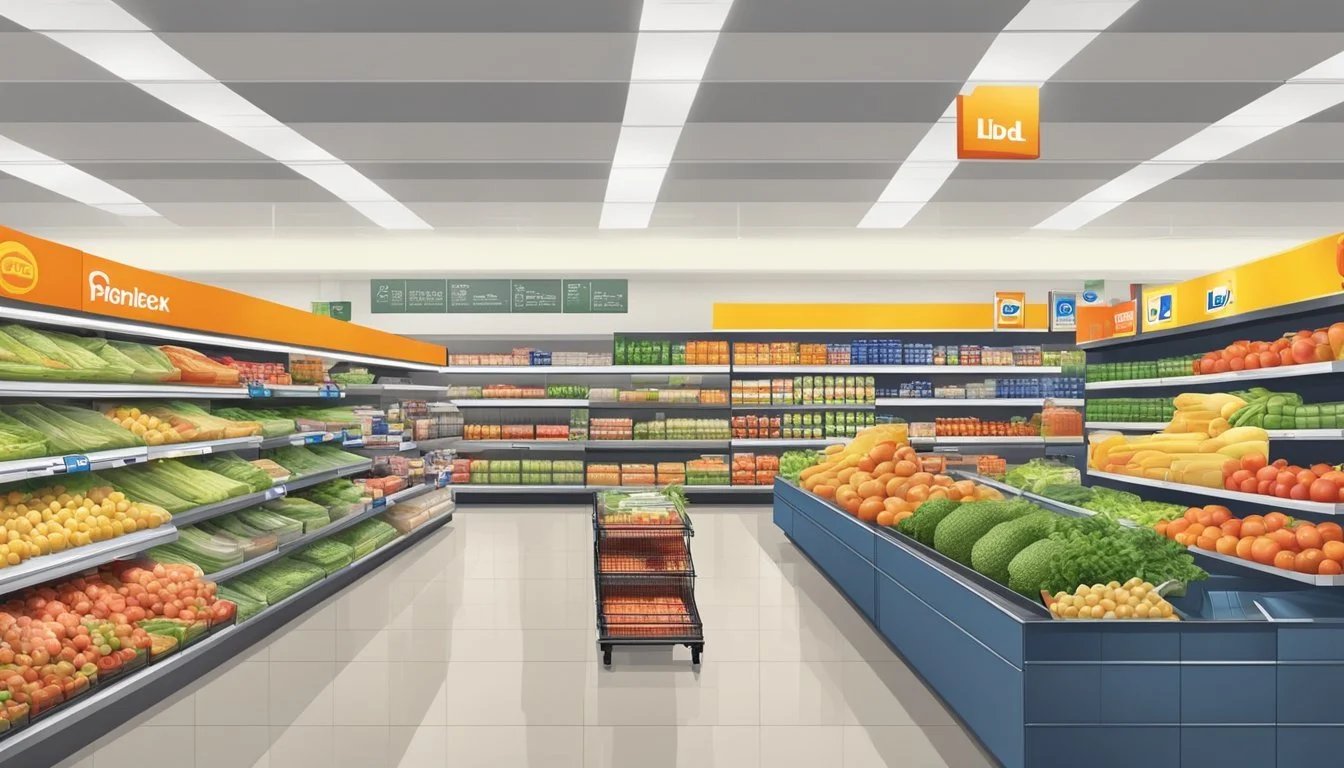Lidl vs Smart & Final
A Comprehensive Comparison of Price and Quality
Grocery shopping can be a significant expense for many households, making the choice of store an important decision. Lidl and Smart & Final are two popular options that offer distinct shopping experiences and product selections.
Lidl, a European discount chain, has been expanding its presence in the United States. Known for its efficient store layouts and mix of private-label and name-brand products, Lidl aims to provide quality groceries at competitive prices. Smart & Final, on the other hand, has deep roots in California and caters to both household shoppers and small businesses with its bulk offerings and varied inventory.
While Lidl typically offers lower prices on everyday items, Smart & Final's larger package sizes and wider selection of commercial products may appeal to certain shoppers. The best choice ultimately depends on individual needs, shopping habits, and location. Both stores strive to provide value, but their approaches and target customers differ, creating unique advantages for each.
Company Backgrounds
Lidl and Smart & Final have distinct origins and growth trajectories that shaped their current positions in the grocery retail market. Both companies have expanded their presence over the years, catering to different customer segments.
History of Lidl
Lidl traces its roots to 1930s Germany when Josef Schwarz founded Schwarz Lebensmittel-Sortimentsgroßhandlung. The first Lidl store opened in 1973 in Ludwigshafen. By the 1980s, Lidl had expanded across Germany.
The company ventured into international markets in the 1990s, starting with France and the UK. Lidl's expansion continued rapidly across Europe.
In 2017, Lidl entered the US market, focusing on the East Coast. The retailer now operates over 11,000 stores in 32 countries.
Lidl is known for its no-frills approach, offering high-quality products at low prices. The company emphasizes efficiency and a curated selection of items.
History of Smart & Final
Smart & Final's history dates back to 1871 when it was founded in Los Angeles, California. Originally named Hellman-Haas Grocery, it served as a supplier for local businesses.
In 1914, the company rebranded as Smart & Final Wholesale Grocers. It focused on serving small businesses and foodservice operators.
Smart & Final expanded its presence across the western United States in the 20th century. The company introduced its warehouse-style stores in the 1980s.
In recent years, Smart & Final has evolved to cater to both business and household customers. It operates over 250 stores across California, Arizona, and Nevada.
The retailer offers a mix of bulk items, fresh produce, and household goods. Smart & Final's unique format bridges the gap between traditional grocery stores and warehouse clubs.
Store Layout and Design
Lidl and Smart & Final employ distinct layout strategies to shape their customers' shopping experiences. Both aim to maximize efficiency and sales through careful product placement and store design.
Shopping Environment at Lidl
Lidl stores feature a compact, no-frills layout designed for quick shopping trips. The aisles are wide and clearly marked, allowing easy navigation with shopping carts. Products are often displayed in their original shipping boxes, reducing overhead costs.
Lidl's layout typically follows a loop pattern, guiding customers through all sections before reaching the checkout. Essential items like bread, milk, and eggs are strategically placed towards the back, encouraging shoppers to explore more of the store.
The center aisles showcase weekly specials and rotating non-food items, creating a treasure hunt atmosphere. This approach aims to spark impulse purchases and keep the shopping experience fresh.
Shopping Environment at Smart & Final
Smart & Final adopts a warehouse-style layout, catering to both individual shoppers and small businesses. The stores are larger than Lidl's, with wider aisles to accommodate bulk purchases and pallet-sized displays.
The layout is generally grid-based, with clear signage directing customers to specific departments. Shoppers can easily maneuver large shopping carts through the spacious aisles.
Smart & Final's design emphasizes efficiency for frequent shoppers. High-demand items are placed near the entrance for quick grab-and-go trips. The store's back sections house bulk goods and restaurant supplies, appealing to business customers.
Fresh produce and perishables are typically located along the perimeter, encouraging a full store circuit. This layout balances the needs of various customer types, from families to small business owners.
Product Range and Availability
Lidl and Smart & Final offer distinct product selections tailored to different shopper needs. Lidl focuses on everyday groceries with a European flair, while Smart & Final caters to both household and business customers with bulk options.
Product Offerings at Lidl
Lidl's product range emphasizes quality and value. Their produce section features a variety of fresh fruits and vegetables, often sourced locally when possible. The meat department offers both conventional and organic options. Lidl's bakery is known for its fresh-baked breads and pastries.
Lidl stocks a curated selection of canned goods, pasta, and beans. Their wine aisle is particularly noteworthy, featuring award-winning bottles at competitive prices. Cheese lovers appreciate Lidl's diverse array of European cheeses.
The store carries a mix of name-brand items and their own private labels. Lidl's spice section, while not extensive, covers most common seasonings at affordable prices.
Product Offerings at Smart & Final
Smart & Final's product range caters to both retail and foodservice customers. Their produce section is expansive, with bulk options ideal for large families or small businesses. The meat department offers various cuts in family-sized packages.
The store excels in bulk dry goods, with a wide selection of canned goods, pasta, and beans. Smart & Final's wine selection is more limited than Lidl's but includes popular brands. Their deli section features both pre-packaged and freshly sliced meats and cheeses.
Smart & Final carries an extensive range of spices, including large containers suitable for commercial kitchens. While they offer some organic items, the selection is not as prominent as in traditional grocery stores.
Pricing and Value
Lidl and Smart & Final employ distinct pricing strategies to attract budget-conscious shoppers. Both aim to offer competitive prices, but their approaches differ in key ways.
Pricing Strategy at Lidl
Lidl focuses on everyday low prices across its product range. The German discounter keeps costs down through efficient operations and a limited selection of mainly private-label items. Lidl's pricing model emphasizes consistent value rather than frequent sales or promotions.
Shoppers can typically find staples like milk, eggs, and bread at rock-bottom prices. Lidl also offers weekly specials on select items to drive traffic. The store's "Lidl Surprises" section features rotating deals on non-food products.
Lidl's no-frills approach extends to its store layout and packaging. Simple shelving and minimal decor help reduce overhead costs, allowing for lower retail prices. While the selection may be more limited than traditional supermarkets, Lidl aims to provide quality at budget-friendly prices.
Pricing Strategy at Smart & Final
Smart & Final takes a hybrid approach, blending aspects of a discount store and a warehouse club. The chain offers both individual and bulk-sized products to cater to households and small businesses.
Prices at Smart & Final tend to be competitive, especially on larger pack sizes. The store features a mix of national brands and its own First Street private label. Smart & Final runs weekly sales and promotions, often with deeper discounts than its everyday pricing.
Club-sized packaging allows Smart & Final to offer lower per-unit costs on many items. The store also provides a price comparison tool to showcase potential savings. While not always the cheapest option for small quantities, Smart & Final can offer significant value for customers willing to buy in bulk.
Quality and Freshness
Lidl and Smart & Final offer different approaches to quality and freshness in their grocery selections. Both stores aim to provide value, but their strategies and product offerings differ.
Quality of Groceries at Lidl
Lidl emphasizes high-quality products at competitive prices. The store's produce section features a variety of fresh fruits and vegetables, often sourced from local suppliers. Lidl's organic options are expanding, with many items available under their own brand.
The meat department at Lidl offers a selection of fresh cuts, including poultry, beef, and pork. Their seafood options are limited but typically include popular choices like salmon and shrimp.
Lidl's dairy section stocks a range of products, from basic milk and eggs to specialty cheeses. Many items are sourced from European suppliers, giving customers access to unique flavors.
Quality of Groceries at Smart & Final
Smart & Final focuses on bulk purchases and restaurant-quality items. Their produce section offers a mix of conventional and organic options, with an emphasis on larger quantities suitable for families or small businesses.
The store's meat department provides both packaged and fresh-cut options. Smart & Final is known for its wide selection of frozen meats and seafood, catering to diverse customer needs.
Smart & Final's dairy section includes standard items as well as commercial-sized options. The store carries a variety of specialty products, including lactose-free and plant-based alternatives.
Both stores maintain quality control measures, but Smart & Final's focus on bulk items may appeal more to those shopping for larger households or businesses.
Brand and Private Labels
Lidl and Smart & Final offer distinct approaches to brand selection and private labels. Both stores provide a mix of national brands and exclusive store brands, but with differing emphases and strategies.
Exclusive Brands at Lidl
Lidl's product lineup focuses heavily on private label items. The store carries over 90% private label products, with limited national brands. Lidl's exclusive brands include Preferred Selection for gourmet foods and Milbona for dairy products.
These private labels often match or exceed the quality of national brands at lower prices. Lidl's "love it guarantee" allows customers to return products for a full refund if unsatisfied.
The store rotates in new private label products regularly, creating a "treasure hunt" shopping experience similar to Aldi or Trader Joe's.
Exclusive Brands at Smart & Final
Smart & Final balances national brands with its own private labels. The store's exclusive brands include First Street for groceries and Sun Harvest for organic products.
These store brands typically offer savings compared to national equivalents. Smart & Final also carries a wider selection of national brands than Lidl, appealing to shoppers who prefer familiar names.
The store's larger format allows for more variety in both national and private label offerings. This broader selection can be advantageous for customers seeking specific brands or products.
Customer Experience and Services
Lidl and Smart & Final offer distinct shopping experiences with varying levels of customer service. Both stores have unique policies and approaches to meeting shopper needs.
Customer Service at Lidl
Lidl focuses on efficiency and low prices. The store layout is simple, with a limited selection of products. This streamlined approach allows for faster shopping trips.
Lidl's staff is trained to be helpful but not overly intrusive. Cashiers are known for their quick scanning abilities, reducing checkout times.
The myLidl app enhances the customer experience. It provides personalized deals and offers, making savings more accessible to shoppers. Recent upgrades have improved the app's functionality, allowing customers to view deals while shopping.
Lidl's return policy is generally customer-friendly. They offer a "Love It or Return It" guarantee on many items, providing refunds with a receipt.
Customer Service at Smart & Final
Smart & Final caters to both individual shoppers and small businesses. Their stores typically offer a wider range of products compared to Lidl, including bulk items.
Staff at Smart & Final are often knowledgeable about their products, especially in departments like produce and meat. This can be helpful for customers seeking advice or recommendations.
The store layout is more traditional, with clearly marked aisles and sections. This can make it easier for first-time shoppers to navigate.
Smart & Final's loyalty program offers personalized deals and discounts. However, it may not be as technologically advanced as Lidl's app-based system.
Their return policy is standard for grocery stores, allowing returns with a receipt within a reasonable timeframe. They also offer rain checks for out-of-stock sale items.
Sustainability and Ethics
Lidl and Smart & Final have implemented various sustainability and ethical practices in their operations. Both retailers recognize the importance of environmental stewardship and responsible sourcing.
Sustainability Initiatives at Lidl
Lidl has set ambitious sustainability goals as part of its corporate social responsibility efforts. The company aims to reduce its Scope 1 and Scope 2 greenhouse gas emissions by 70% by 2030, compared to 2019 levels. This demonstrates a strong commitment to mitigating climate change impacts.
Lidl has also focused on sustainable packaging. The retailer works to increase the use of recycled materials and reduce plastic waste in its product packaging.
In terms of ethical sourcing, Lidl has implemented policies to ensure fair labor practices and animal welfare standards throughout its supply chain. The company offers a growing selection of organic and sustainably sourced products to meet consumer demand for eco-friendly options.
Sustainability Initiatives at Smart & Final
Smart & Final has taken steps to improve its sustainability performance, though specific information about their initiatives is more limited compared to Lidl. The company has implemented energy-efficient practices in its stores to reduce electricity consumption and lower its carbon footprint.
Smart & Final offers a range of organic and natural products to cater to environmentally conscious consumers. The retailer has also worked on optimizing its logistics to reduce transportation emissions.
In terms of ethical sourcing, Smart & Final has policies in place to ensure responsible procurement practices. However, detailed information about their animal welfare standards or fair labor initiatives is not as readily available.
Location and Convenience
Lidl and Smart & Final offer distinct shopping experiences influenced by their store locations and accessibility. Both chains aim to provide convenient options for customers, but their approaches differ in key ways.
Store Proximity and Accessibility at Lidl
Lidl primarily focuses on expansion in the Northeast United States. The German discount grocer has rapidly increased its presence, opening new stores in strategic locations. Lidl typically chooses suburban areas with ample parking and easy road access. Their stores are often found in shopping centers or standalone buildings near residential neighborhoods.
Lidl's store design prioritizes efficiency. Shoppers can expect a compact layout with wide aisles for easy navigation. Most Lidl locations offer extended hours, opening early and closing late to accommodate various schedules. The chain also invests in digital tools, including a mobile app for locating nearby stores and checking product availability.
Store Proximity and Accessibility at Smart & Final
Smart & Final maintains a strong presence in California and other Western states. The chain caters to both household consumers and small businesses. Smart & Final stores are often located in urban areas, including city centers and dense suburban neighborhoods.
Many Smart & Final locations offer convenient features like dedicated parking lots or validated parking in shared structures. The stores typically have a larger footprint than Lidl, accommodating their wide range of bulk and individual items. Smart & Final's layout is designed for efficient shopping, with clear signage and organized departments.
The chain also operates Smart & Final Extra! stores, which offer an expanded selection of fresh produce and household items in addition to their traditional bulk offerings.
Special Deals and Promotions
Both Lidl and Smart & Final offer attractive promotions to entice shoppers. These deals can lead to significant savings for savvy customers who plan their purchases around weekly sales.
Weekly Deals at Lidl
Lidl's weekly specials typically start on Wednesdays and run for seven days. The retailer promotes these deals through a digital flyer on their website and mobile app. Lidl's "Fresh 5" program highlights five produce items at exceptionally low prices each week.
The store also features "Lidl Surprises," which are limited-time, non-food items like clothing, kitchenware, and electronics. These products often sell out quickly due to their competitive pricing.
Lidl's loyalty program, myLidl, provides members with exclusive coupons and personalized offers based on shopping habits.
Weekly Deals at Smart & Final
Smart & Final releases new weekly ads every Tuesday, valid for seven days. These deals are accessible through their website, mobile app, and in-store circulars. The retailer often offers bulk discounts on pantry staples and household items.
Smart & Final's "Extra Savings" program provides additional discounts on select items throughout the store. These deals are clearly marked with bright yellow tags.
The store's Club Card program is free to join and allows customers to access digital coupons and earn points on purchases. These points can be redeemed for discounts on future shopping trips.
Comparison Summary
Lidl and Smart & Final offer distinct shopping experiences for budget-conscious consumers. Lidl focuses on providing a curated selection of high-quality private label products at competitive prices. The store layout is typically compact and efficient.
Smart & Final, on the other hand, caters to both individual shoppers and small businesses. Their product range includes bulk items and restaurant-quality goods. The stores are generally larger with a warehouse-style setup.
Price comparisons between the two chains can vary by location and specific items. Lidl often excels in affordable everyday groceries, while Smart & Final may offer better deals on bulk purchases.
Product quality at Lidl is generally praised, especially for their private label offerings. Smart & Final provides a mix of name brands and their own First Street label, appealing to different customer preferences.
Aspect Lidl Smart & Final Focus Private labels, European-style Bulk items, business supplies Store size Compact Larger, warehouse-style Price point Low, everyday items Competitive, bulk savings Product range Curated selection Wide variety, including foodservice
Both stores aim to provide value, but their approaches differ. Lidl emphasizes a streamlined shopping experience with carefully selected products. Smart & Final offers more variety and caters to a broader range of shopping needs.

